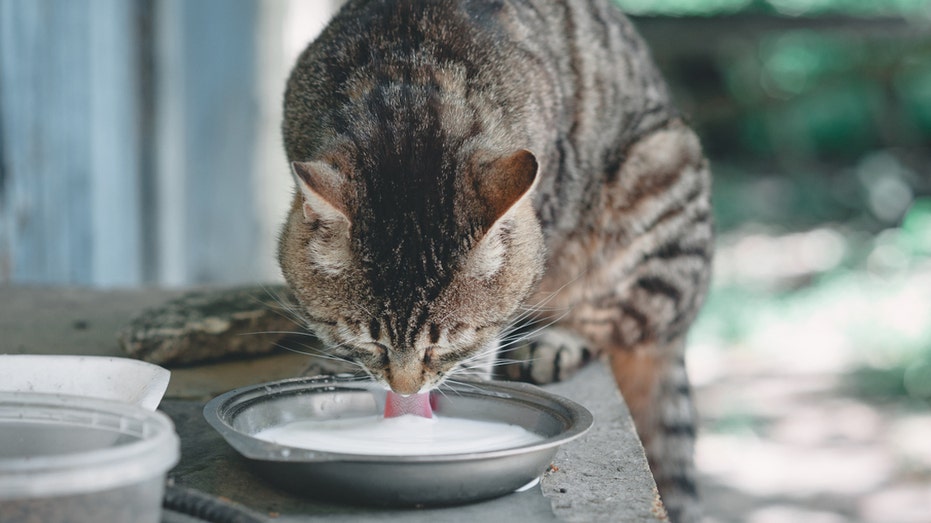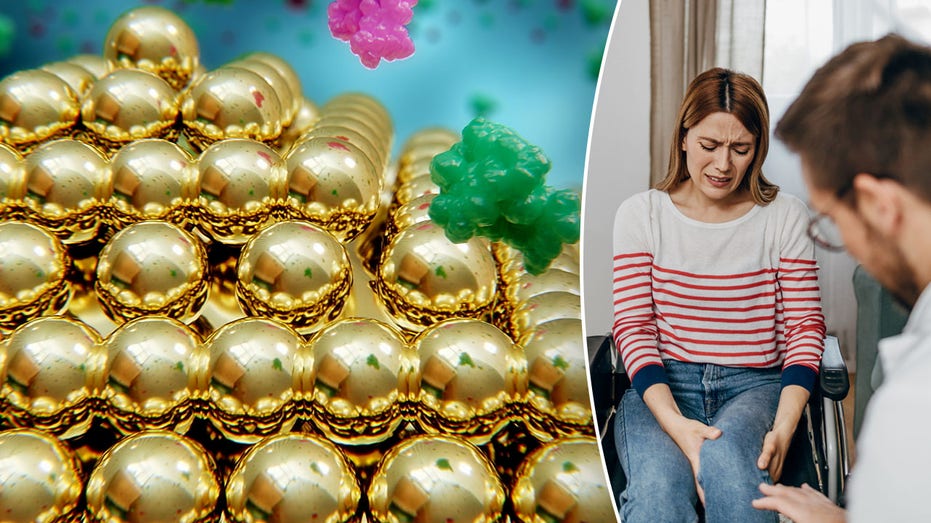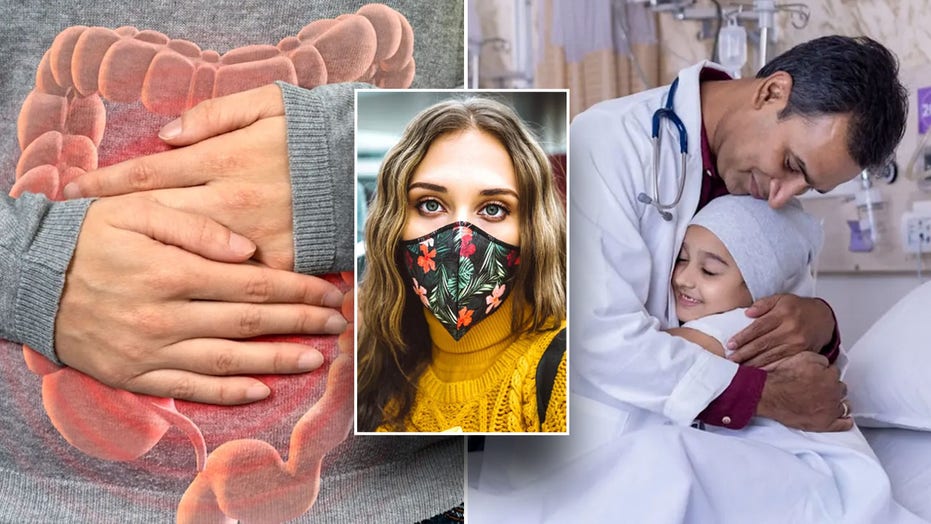A cluster of cats on a Texas dairy farm died after drinking raw milk from dairy cows affected with bird flu, according to a report from the U.S. Centers for Disease Control and Prevention (CDC).
The felines developed “fatal systemic influenza infection” after drinking the unpasteurized colostrum and milk from cows that tested positive for the virus.
Initally, the cats developed signs of sickness that included “a depressed mental state, stiff body movements, ataxia (impaired coordination), blindness, circling and copious oculonasal discharge,” the report said.
AMID BIRD FLU SPREAD, EXPERTS REVEAL IF IT’S SAFE TO DRINK MILK: ‘INDIRECT CONCERN’
The felines also showed neurological effects during exams.
Of some 24 cats that were given the raw milk from the diseased cows, around half of them died between March 19 and March 20, said the report, which was released on Monday.
Most cats became sick within two or three days after exposure.
Tissue samples from two of the deceased cats tested positive for HPAI H5N1 virus on March 21, the CDC noted.
While exposure to dead wild birds “cannot be completely ruled out” as a source of the virus, the report stated that milk and colostrum are a “likely route of exposure.”
BIRD FLU VIRUS FOUND IN GROCERY STORE MILK, BUT NO RISK TO CUSTOMERS, FDA SAYS
This is based on “the known consumption of unpasteurized milk and colostrum from infected cows,” as well as the high amount of “virus nucleic acid” within the milk.
“The death of the cats suggests that avian flu can cause illness due to ingestion,” said Edward Liu, M.D., chief of infectious diseases at Hackensack Meridian Jersey Shore University Medical Center in New Jersey, in a statement to Fox News Digital.
“This is interesting, as many respiratory viruses are optimized for infection via mucous membranes, like the nose and mouth.”
The report reinforced the need to ingest pasteurized milk exclusively, Liu said.
“I can think of no reason to drink raw milk.”
Before milk can be sold commercially, government regulations require it to be pasteurized.
During the pasteurization process, raw milk is heated to a certain temperature for a brief period of time and is then chilled again, according to the International Dairy Foods Association (IDFA) website.
This process kills any pathogens and ensures that milk is safe to drink.
“In the U.S., commercial intrastate sold milk is required to be pasteurized,” Dr. Scott Pegan, professor of biomedical sciences at the University of California, Riverside and a biochemist for the United States Medical Research Institute of Chemical Defense, told Fox News Digital last week.
“This process is geared to kill viruses like H5N1 and other bacteria that can pose a threat to human health.”
“Milk that has been pasteurized is safe and there is no current reason to avoid it or other pasteurized milk products,” Pegan went on.
“However, there is a substantial risk of consuming unpasteurized milk and products of that milk.”
Even after viruses and bacteria have been killed in pasteurized milk, remnants can remain in the milk, he said — but they are not dangerous.
Last week, the FDA restated its “long-standing recommendation” that consumers avoid drinking raw milk that has not been pasteurized.
CLICK HERE TO SIGN UP FOR OUR HEALTH NEWSLETTER
The agency also recommended that companies refrain from manufacturing or selling raw milk or raw milk products made with milk from cows that tested positive for bird flu, were exposed to the virus or showed symptoms of illness.
The FDA also urged producers to “take precautions” when discarding milk from affected cows, “so that the discarded milk does not become a source of further spread.”
So far, only one person is confirmed to have contracted the virus after exposure to infected cows, the FDA said.
“The CDC says the risk to the general public remains low,” the agency said.
“The FDA and USDA continue to indicate that, based on the information we currently have, our commercial milk supply is safe.”
Fox News Digital reached out to the CDC for additional comment.




